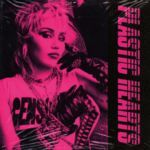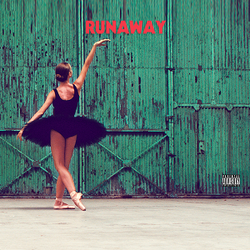 Miley Cyrus’s “Plastic Heart” is a daring declaration nestled within the swaggering rock rebellion of her 2020 album Plastic Hearts. At seven and a half minutes, it towers over the album’s other songs in length and ambition, and deserves as much attention for its emotional depth as for its sonic bravado. This is a ballad of strength and fracture, of reclaiming identity and interrogating identity, of what is real when the whole world seems coated in that custom cosmetic gloss. It doesn’t just close the album—it deconstructs it from within, offering a rare glimpse of vulnerability in the marketer’s arena.
Miley Cyrus’s “Plastic Heart” is a daring declaration nestled within the swaggering rock rebellion of her 2020 album Plastic Hearts. At seven and a half minutes, it towers over the album’s other songs in length and ambition, and deserves as much attention for its emotional depth as for its sonic bravado. This is a ballad of strength and fracture, of reclaiming identity and interrogating identity, of what is real when the whole world seems coated in that custom cosmetic gloss. It doesn’t just close the album—it deconstructs it from within, offering a rare glimpse of vulnerability in the marketer’s arena.
From its opening notes, “Plastic Heart” moves away from carnival pyrotechnics. Space is allowed; atmosphere is given room to breathe. A subtle piano chord drifts through the speakers, sounding like a question raised in a dark room. There’s no immediate crash of drums, no electric guitar heralding the moment as an anthem. Instead, Cyrus’s voice enters gradually, as if waking from sleep. She doesn’t launch into a chorus—she contemplates. “Built a world out of better words,” she sings, her tone even, her emotion carefully managed. In that first line, the duality of the title is established: a heart that’s “built” but only out of words—fleeting, insubstantial things—and “better” in appearance but not necessarily in resilience.
The track unfolds slowly, allowing tension to collect like static electricity in the air before a storm. Instruments drift in—ambient synths, discreet percussion, distant strings—never filling the space, but coloring it. Cyrus’s voice remains the focal point, natural and unfiltered, vulnerability allowed to float to the surface. She sings of transformation, of chameleon personas and transient masks, but never in irony or boast. Her tone is confessional, as though she’s unpacking the armour she built to protect herself. She’s surrendering the performance to tell us what resides beneath.
In moments when the arrangement swells—a gentle lift of harmonies, a slight chill of reverb—Cyrus leans into the emotion without overpowering it. She resists grand gestures. Instead, small cracks in her voice reveal a rawness it seems she didn’t fully intend, and those cracks speak louder than any vocal theatrics would. You hear someone who has built defenses and is now examining whether those defenses have hardened her too much, disguised her from herself—and everyone else.
The lyrics dig into identity in a way that feels both universal and intensely personal. Chriss-cross imagery like “I’m an expert at rolling with the punches” speaks to industry-hardened resilience, but then the refrain hits: I’m still an artist with a plastic heart. That phrase sizzles with contradiction. She’s both creator and creature. She’s sculpted her persona, but has that sculpture choked the life from the real thing?
Cyrus doesn’t shy away from accountability: “I protected this glass case / Now the whole world can’t break in.” She owns the isolation she’s imposed, yet there’s regret in admitting its effect. It’s not an accusation, it’s an inventory: what have I done to survive? What have I done to hide? How do I undo it now?
Midway through, we reach the heart of the song’s tension. A minimalist bridge where she repeats, Plastic heart, plastic heart, the words a chant, a heartbeat, a sigh. Subtly, the percussion picks up. A guitar echo chords in the distance. She’s edging closer to eruption, but holds it back. It’s like watching someone close a wound but flinch at the pain threshold. In resisting the eruption, she makes it more potent—an aural argument against emotional hard limits.
A finale arrives, not in fireworks, but in intimacy. The arrangement recedes. Cyrus repeats the refrain softly, almost reverently, layering imperfection—breath, rasp, raw ends of lines. You sense she’s letting go of the performer talk-back and revealing something fragile. The ending doesn’t resolve; it questions. It lingers on the last phrase: I’m still an artist with a plastic heart—and it echoes the grief that maybe she’s not sure yet who she is beneath the gloss.
“Plastic Heart” doesn’t need elaborate lyricism. Its power is in what’s unsaid, what trembles in vocal cracks, what the music allows to remain unspoken. In a soundtrack full of glam, guitar, and roars, it is the moment of truth. It is the emotional thesis of an album that otherwise seems built for outward shock. It’s the reckoning that happens when the lights go down and the beat stops.
In the larger narrative of Miley Cyrus, the song comes at a crossroads. She has worn many exteriors: Disney darling, edgy pop provocateur, country songstress, rock revivalist, TikTok stylizer. Plastic Heart explicitly names that shapeshifting muse machine. This song acknowledges how exhausting it is to be remade on demand, and how artificial that can feel. And yet she’s not blaming the process; she seems to be grieving the cost. That tension between culpability and self-preservation is where the song lives.
Few tracks ask the performer themselves to step off stage and wander the empty set. “Plastic Heart” does exactly that. It points inward. And in a musical culture that prizes spectacle, this candid, quiet dissection feels rare—almost radical. It’s rock-star introspection without the echo chamber. It’s not set to go viral on first listen. It’s built to exist in the quiet blur of late nights.
When the album’s title track is heard in concert or replayed on headphones, its rarity is what makes it shine. It doesn’t have the crowd-chant-grip of those outward-facing anthems. It asks listeners to lean in, to find intensity not in volume, but in resonance. That’s the muscle of the song—holding firm in silence. And it confirms that Miley Cyrus knows how to wield that muscle.
Honesty in a song like this is not about lyric complexity. It’s about the courage to strip away power. To build a production next to empty space. To admit the cost of building confidence. And to still sound present in your own voice. That is the beauty of “Plastic Heart.”
What Cyrus achieves here is not just a catalog moment; it’s a manifesto of emotional ownership. She says: I constructed a protective shell but at the cost of feeling. Now I’m laying it down in a song. That unvarnished moment is what gives the album its substance, its heart—not its plastic.
As Miley continues to reinvent herself, adopting new musical styles or genres, “Plastic Heart” stands as her checkpoint of truth. If the rest of her catalog is about invention and image, this song is about integrity and introspection. It reminds her—and us—that evolution is hollow unless it rings true inside.
In the echo of her final “plastic heart,” we hear both lament and liberation. It refuses to resolve, but leaves a quiet space that feels vast. It leaves room for answer, forgiveness, acknowledgement—without preaching. It closes not with triumph, but with presence. It’s a song that knows how to be undone, and isn’t afraid of it.
That’s what makes “Plastic Heart” remarkable. Not its hooks or theatrics. Not its reign as a single. But its courage to open the door on stage, and let us see what’s left when the lights come up—and the artist stands unmasked, holding a heart that maybe isn’t plastic after all, but scarred, valuable, real.


